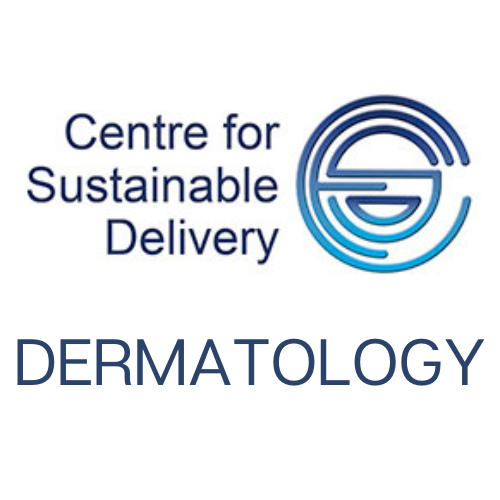Rosacea is a chronic relapsing disorder with intermittent or persistent facial flushing, telangiectasia and pustules, in the absence of comedones. Rosacea can also cause ocular symptoms such as dry gritty eyes.

Rhinophyma
Less commonly, rosacea can develop Rhinophyma where the shape and size of the nose changes


General Advice
- Give patient information sheet
- Advise about oil-free products
- Advise on UV protection
- Cosmetic camouflage may be helpful for flushing, erythema and telanglectasia which will not respond to topical or oral antibiotics
- Avoid exacerbating factors: spicy foods, alcohol, hot drinks, caffeine, temperature changes, sun exposure
Topical Therapy
- Use topical agents for 2-3 months then intermittently as required
- Metronidazole gel or cream od
- Azelaic acid 15% gel or 20% cream od
- Ivermectin cream 10mg/g od
- Brimonidine 0.33% gel for temporary improvement of erythema as required od
Systemic therapy
- 2-3 months courses required intermittently
- Lymecycline 408mg od
- Doxycline 200mg od
- Erythromycin 500mg bd
